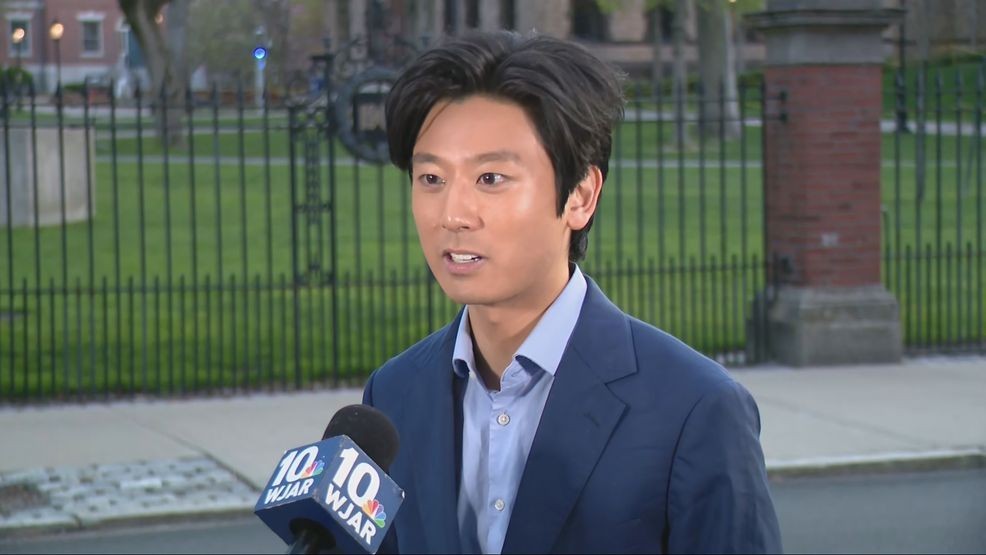WASHINGTON (TNND) — Brown University student Alex Shieh will face no discipline after sending a DOGE-like email to thousands of administrators. The university sent Shieh an email Wednesday informing him that he did not violate the code of student conduct.
In March, Shieh, who is a student journalist at Brown, sent emails to around 3,800 non-faculty administrators, asking them to explain their jobs and dig into why tuition is just north of $90,000/year.
TNND’s Geoff Harris secured the first on-camera interview with Shieh on Thursday.
To get a better understanding of what their jobs were. It was respectful and it was a press request to request for comment,” said Shieh.
Shieh listed the administrators’ names on a website called ‘Bloat@Brown.’ Shortly after, university officials responded with disciplinary charges.
“They hit me with emotional harm, then it got changed to misrepresentation,” Shieh said.
Officials also suggested Shieh may have improperly used the school’s software, and his targeting of individual employees may have contradicted school policies.
“They argued that my process of sending the emails and gathering the data on these employees violated Brown’s technology policy,” said Shieh.
Upon learning of the charges, the Foundation for Individual Rights and Expression (FIRE) stepped in. Criticizing Brown over its commitment to free speech.
“Our primary concern is building a culture of free expression and specifically of free press at Brown,” said Dominic Coletti, a Program Officer at FIRE.
On Wednesday, after nearly two months fighting the charges and a week after Shieh’s hearing, he received an email from a university official saying they found him not responsible and wouldn’t face any discipline.
There wasn’t nearly enough in allegations they put forward to justify any of the charges that they put at Alex’s feet,” Coletti said. “I continue to prosecute this case against Brown, I guess, for Killing the American dream,” added Shieh.
Shieh said he believes those who retaliated against a student journalist need to be held responsible. He also called on University President Christina Paxson to resign.
Brown’s Vice President for News and Strategic Campus Communications, Brian Clark, sent us this statement upon request for comment:
Both federal law and University policy protecting the privacy of student records limit our ability to disclose details publicly about disciplinary processes for individual students. While we cannot share details on the outcomes of Brown’s student conduct process, we can offer broader comments on the issue and our process:
Despite continued public reporting framing this as a free speech issue, it absolutely is not. Since the initiation of Brown’s review, that review has centered on investigating whether improper use of non-public Brown data or non-public data systems violated law or policy; whether deliberate targeting of individual employees violated law or policy; and whether violations of Brown’s misrepresentation or name use policies took place.
Brown has detailed student conduct procedures in place to investigate alleged conduct code violations, resolve them, and — in instances when students are found responsible — implement discipline. They are publicly available and outline in detail how disciplinary procedures and hearings are conducted, the rights and responsibilities students have, what outcomes might be expected, and how students can appeal decisions.
Those procedures have guided our actions since this issue originated. Students have ample opportunity to provide information and participate directly in that process to ensure that all decisions are made with a complete understanding of circumstances. As Brown’s procedures make abundantly clear, students are not presumed to be responsible for alleged violations unless so found through the appropriate conduct proceedings.
Since the start of this matter, Brown has proceeded in complete accordance with free expression guarantees and appropriate procedural safeguards under University policies and applicable law.

